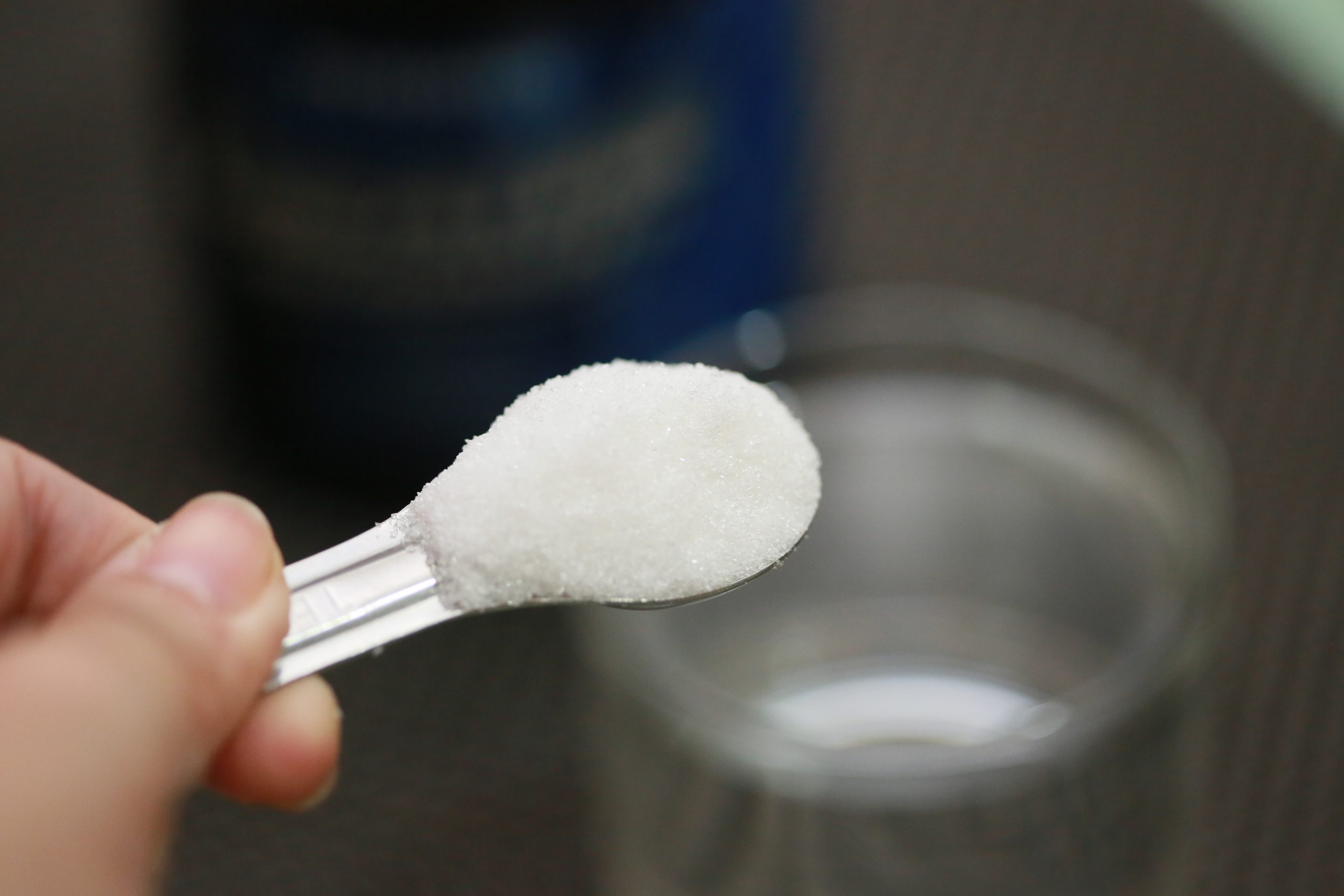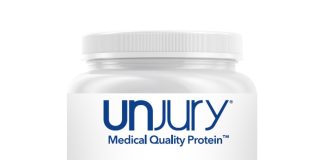Last Updated on October 16, 2024
As human beings, we’re wired to push ourselves towards constant improvement, both in the gym and in everyday life. Whether it’s physical performance, mental sharpness, or just a competitive edge, we tend to look for ways to excel. For athletes, especially, the drive to outperform is fierce. This brings us to supplementation – an essential aspect of sports and fitness. And when it comes to supplements, creatine stands out as one of the most popular, effective, and researched options available.

In this post, we’ll dive deep into the world of creatine, exploring the various types of creatine supplements on the market, why top athletes use them, and how creatine supports muscle gains, brain health, and overall performance improvements.
What is Creatine?
At its core, creatine is a naturally occurring substance found in the human body. It plays a critical role in energy production by converting into creatine phosphate, which helps form adenosine triphosphate (ATP) – the energy currency of the body. ATP fuels muscle contractions, which is why creatine is so popular among athletes seeking to enhance their physical performance.
Though the body produces creatine naturally, you can also find it in various protein-rich foods, such as meat and fish. However, for individuals with high energy demands – particularly athletes – their natural creatine levels may not be enough to support their performance goals. That’s where creatine supplements come into play.
The Benefits of Creatine: What Does It Do to the Body?
So, why has creatine become such a hot commodity? Since the 1970s, when researchers first began investigating its effects, creatine supplementation has been shown to provide a range of benefits, including:
- Increased Strength: Creatine has been proven to boost strength levels, allowing athletes to lift heavier weights, push harder during workouts, and ultimately gain more muscle.
- Enhanced Muscle Mass: Creatine promotes water retention in muscle cells, which not only makes the muscles look fuller but also supports the conditions needed for muscle growth.
- Improved Recovery: For those engaged in high-intensity training, creatine aids in quicker recovery between sets, allowing for better endurance during prolonged workouts.
- Explosive Power: Athletes involved in short bursts of intense activity, such as sprinters or weightlifters, benefit significantly from creatine’s ability to enhance quick energy production.
- Cognitive Support: While creatine is widely known for its physical benefits, there is also growing evidence suggesting that it supports brain health and cognitive function, especially in older adults.
It’s no wonder that creatine is a staple in the supplement stacks of athletes ranging from bodybuilders to endurance runners. However, while many people experience these positive effects, it’s important to note that not everyone responds to creatine in the same way.
Creatine: A Hit or Miss?
While creatine offers an impressive array of benefits, it doesn’t work for everyone. Some individuals, particularly those involved in endurance sports, may not see significant performance improvements from creatine supplementation. Studies have shown that people who naturally have higher levels of creatine in their muscles may not respond as well to creatine supplements. This phenomenon, known as being a “non-responder,” means that the individual may see little to no benefit from taking creatine.
Despite this variability, for those who do respond well to creatine, the supplement can make a world of difference in their performance, recovery, and overall gains. Understanding your body’s response to creatine may require some experimentation, but for many athletes, the payoff is worth it.

Types of Creatine: Which One is Right for You?
Creatine comes in several forms, each with its own unique characteristics. Let’s take a closer look at the most popular types of creatine available on the market and how they differ:
- Creatine Monohydrate: The gold standard of creatine supplements, creatine monohydrate is the most studied and widely used form. It’s highly effective for increasing muscle mass, strength, and endurance. If you’re new to creatine or unsure of which type to try, creatine monohydrate is a safe bet. It’s affordable, easy to find, and supported by decades of research.
- Creatine HCL (Hydrochloride): This form of creatine is known for its enhanced solubility, meaning it dissolves more easily in water and is absorbed faster by the body. Creatine HCL is favored by individuals who experience bloating or digestive discomfort from creatine monohydrate, as the smaller dosage required may reduce these side effects.
- Creatine Ethyl Ester: Designed to improve absorption rates, creatine ethyl ester claims to bypass the water retention associated with traditional creatine monohydrate. However, some studies suggest that it may be less effective than monohydrate in increasing muscle creatine stores.
- Buffered Creatine (Kre-Alkalyn): Buffered creatine is formulated to maintain a higher pH level, which is supposed to enhance its stability in the stomach and reduce breakdown into creatinine (a byproduct of creatine metabolism). While buffered creatine is marketed as being more effective than monohydrate, there’s limited scientific evidence to support these claims.
- Liquid Creatine: Some supplements come in liquid form, making them more convenient for on-the-go consumption. However, creatine is inherently unstable in liquid, meaning that many liquid creatine supplements may degrade before you even consume them. For this reason, liquid creatine is generally not recommended.
- Creatine Magnesium Chelate: This form of creatine is bound to magnesium, which may enhance creatine’s absorption and utilization by the body. Some athletes prefer it for its ability to support both muscular and nervous system function. However, it’s not as well-researched as creatine monohydrate.
- Micronized Creatine: Essentially, micronized creatine is creatine monohydrate that has been processed into smaller particles, allowing for better solubility and absorption. It’s an excellent option for those looking to maximize the benefits of creatine monohydrate while minimizing potential stomach issues.
Creatine Side Effects: Separating Fact from Fiction
With all of the benefits that creatine offers, it’s important to address potential side effects and misunderstandings surrounding its use.
Contrary to popular belief, creatine does not cause baldness, nor does it lower testosterone levels. These myths have been debunked by numerous studies. However, like any supplement, creatine can cause side effects if used improperly or in excessive amounts.
Some common side effects associated with creatine supplementation include:
- Weight Gain: Creatine draws water into muscle cells, which can lead to temporary weight gain due to increased water retention. While this is not harmful, it’s something to be aware of, especially for athletes who need to maintain a specific weight class.
- Gastrointestinal Issues: Some people may experience bloating, diarrhea, or stomach cramps when taking creatine, especially in high doses.
- Dehydration: Since creatine pulls water into your muscles, it’s important to stay well-hydrated while taking the supplement. Failing to do so can increase the risk of dehydration, particularly during intense workouts.
- Kidney and Liver Concerns: While creatine is generally safe for healthy individuals, those with pre-existing kidney or liver conditions should avoid creatine supplementation or consult with a doctor before use. Excessive doses can put strain on these organs.
- Drug Interactions: Creatine may interact with certain medications, including diuretics, caffeine, and diabetes medications. If you’re taking any of these, speak to a healthcare professional before adding creatine to your regimen.
For most people, the side effects of creatine are mild and manageable with proper usage. The key to safe creatine supplementation is to follow recommended dosages (typically 3-5 grams per day) and ensure you’re drinking plenty of water to support kidney function.
Choosing the Best Creatine Supplement: Our Recommendation
After reviewing the different types of creatine, you’re probably wondering which one is the best. While there are many creatine supplements on the market, our top pick remains creatine monohydrate. It’s been thoroughly researched, proven to be effective, and is generally well-tolerated by most users.
One excellent creatine monohydrate product to consider is Nutricost Creatine Monohydrate. This supplement is micronized for better absorption and comes at an affordable price point. Nutricost’s formula contains only pure creatine monohydrate without any unnecessary additives or fillers, ensuring that you’re getting the highest quality product.
Nutricost Creatine has undergone rigorous third-party testing to verify its purity and potency, so you can trust that you’re getting a supplement that delivers real results. Whether you’re looking to boost strength, increase muscle mass, or improve recovery, Nutricost Creatine Monohydrate is a solid choice to add to your supplement stack.
Final Thoughts: Is Creatine Right for You?
Creatine has earned its place as one of the most popular and effective athletic supplements on the market. It’s a proven tool for enhancing performance, building muscle, and supporting overall health. Whether you’re a seasoned athlete or someone just starting on your fitness journey, creatine can provide a powerful boost to help you reach your goals.
If you’re considering trying creatine, start with creatine monohydrate, monitor how your body responds, and always stay hydrated. For those who respond well to creatine, the benefits can be transformative.
Also, remember that supplementation is just one part of the equation. Creatine can be an excellent tool to help you get stronger, build muscle, or recover faster, but it works best when paired with a solid nutrition plan, a well-structured workout routine, and proper rest. Don’t expect miracles just from taking creatine — it’s there to help you push harder, but the real gains come from consistency and effort.
Frequently Asked Questions About Creatine
To wrap things up, let’s tackle a few common questions about creatine that people often ask:
1. Do I need to load creatine? The idea of “loading” creatine involves taking a higher dose (typically around 20 grams per day) for the first 5-7 days, followed by a maintenance dose of 3-5 grams per day. This method helps saturate your muscles with creatine more quickly. While loading can be beneficial, it’s not absolutely necessary. If you prefer a slower approach, you can take the standard dose of 3-5 grams daily from the start, and your muscle stores will eventually reach saturation within a few weeks.
2. Can I mix creatine with other supplements? Yes, creatine can be mixed with other supplements, such as protein powder, pre-workout, or even your favorite post-workout shake. Creatine doesn’t lose its effectiveness when combined with other supplements, and in fact, many pre-workout formulas already contain creatine as one of the main ingredients.
3. Should I take creatine on non-training days? Yes, it’s a good idea to continue taking creatine on your rest days to maintain elevated levels in your muscles. A maintenance dose of 3-5 grams per day is sufficient to keep your creatine stores topped up, even when you’re not training.
4. How long does it take to see results from creatine? Results from creatine can vary depending on the individual, but most people begin to notice improvements in strength, endurance, or muscle fullness within 2-4 weeks of consistent use. If you choose to load creatine, you may see results even sooner.
5. Is creatine safe for women? Absolutely! Creatine is safe and effective for both men and women. It’s a great supplement for anyone looking to improve their performance in the gym, increase muscle mass, or enhance recovery. Women can take the same dosage as men, and the side effects (if any) are typically the same across genders.
6. Will creatine make me bulky? Creatine itself won’t make you “bulky,” but it does support muscle growth by improving your performance during resistance training. If you’re worried about gaining too much muscle, remember that building muscle requires not only supplementation but also consistent strength training and proper nutrition. Creatine can help you get stronger, but it won’t drastically change your physique unless you’re actively working towards that goal.
Final Thoughts on Creatine and Your Fitness Journey
Creatine is one of the most researched and trusted supplements in the fitness industry for a reason. Its benefits, from increased strength and muscle mass to faster recovery times, make it a staple for many athletes and gym-goers. Whether you’re training for a specific sport, trying to build muscle, or simply looking for an edge in your workout routine, creatine can be a valuable addition to your supplement stack.
But remember, as with any supplement, it’s important to listen to your body. Some individuals may experience side effects, while others may find that creatine doesn’t significantly impact their performance. If you fall into the latter category, don’t be discouraged — creatine isn’t a one-size-fits-all solution, and there are plenty of other supplements and strategies to explore on your fitness journey.
Before starting any new supplement, it’s always a good idea to consult with a healthcare professional, especially if you have any underlying health conditions or are taking medications.
Now It’s Your Turn
What are your thoughts on creatine? Do you swear by it, or have you had mixed results? Share your experiences in the comments below, and let’s get a conversation going! And if you’re still on the fence about trying creatine, give it a shot – you might just find it’s the missing piece to taking your fitness to the next level.
Finally, be sure to follow us on social media for more tips, reviews, and guides on all things fitness and supplementation. Whether you’re looking for the best supplements, workout advice, or general health tips, we’ve got you covered.
Wrap Up
Creatine is a powerful and effective supplement for many athletes and fitness enthusiasts. Its ability to increase muscle mass, enhance strength, improve recovery, and support brain health makes it a top choice for those looking to elevate their performance. With numerous forms available, it’s essential to choose the right type of creatine for your needs, though creatine monohydrate remains the tried-and-true option for most people.
When using creatine, stay hydrated, follow recommended dosages, and listen to your body to avoid potential side effects. By doing so, you’ll be able to safely and effectively incorporate creatine into your routine, helping you reach new heights in your fitness journey.
Do you think creatine could be the game-changer you’ve been looking for? Why not give it a try and see how it works for you!







